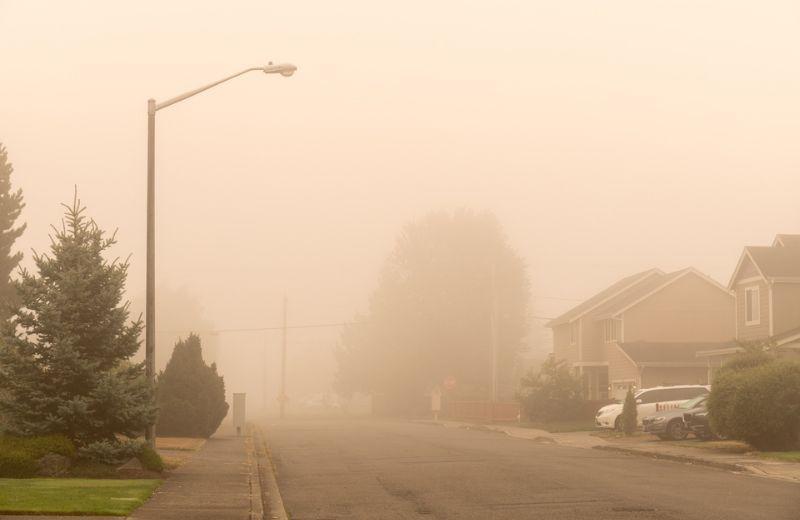The wildfire season has gotten longer, with increases in fire frequency, duration, and severity. At the time of writing this story, according to BC Wildfire Service, there were 236 active wildfires in the Northern Health region of our province. The Donnie Creek wildfire currently burning Southeast of Fort Nelson and North of Fort St. John was the largest wildfire on record for British Columbia and is near Traditional Territories of the Blueberry River First Nation, Doig River First Nation, and Prophet River First Nation.
Even communities far from wildfires can be impacted by smoky skies blocking out the sun. Understanding the mental health effects of wildfires and wildfire smoke is crucial as we enter a time in which these events last longer and occur more frequently than ever before.
Wildfires and mental health
Wildfires can be traumatic and overwhelming for people. Being evacuated, on evacuation alert, or experiencing smoke from far away fires can all contribute to mental health concerns.
Studies that have focused on haze caused by forest fires report associations of smoky air and feelings of sadness and psychological stress. In a study conducted after a wildfire season with over 40 days of smoke, affected residents far from the fires said it was like they lost their summer. People reported isolation from others, less community participation, loss of nature, and worsened mental health.
I can say from personal experiences with recent wildfire activity on Wet’suwet’en territory, it’s stressful to plan and prepare for a potential evacuation.

Coping through wildfire season
Once you protect your and other people’s (and pets’) physical health, it’s important to take care of your mental health too. There are some practical steps you can take to protect your mental wellness during forest fires.
Canadian Mental Health Association’s Coping Through Natural Disasters offers tips to support you, your family, and loved ones.
Some of the tips include:
- Limit your exposure to coverage of the disaster. Repeatedly viewing traumatic images can overwhelm your nervous system, making it harder to think clearly.
- Take care of your basic needs. Try to feed yourself faithfully, move your body regularly, and include rest in your day.
- Prepare. Having a plan for what to do in an emergency for your family and pets can ease worries.
For those who are struggling to cope right now:
- Confidential, culturally safe support is available 24/7 through the KUU-US Indigenous Crisis Line at 1-800-558-8717 or
- BC’s Mental Health Support Line is open to talk people 24 hours a day at 310-6789 (no area code)














Comments